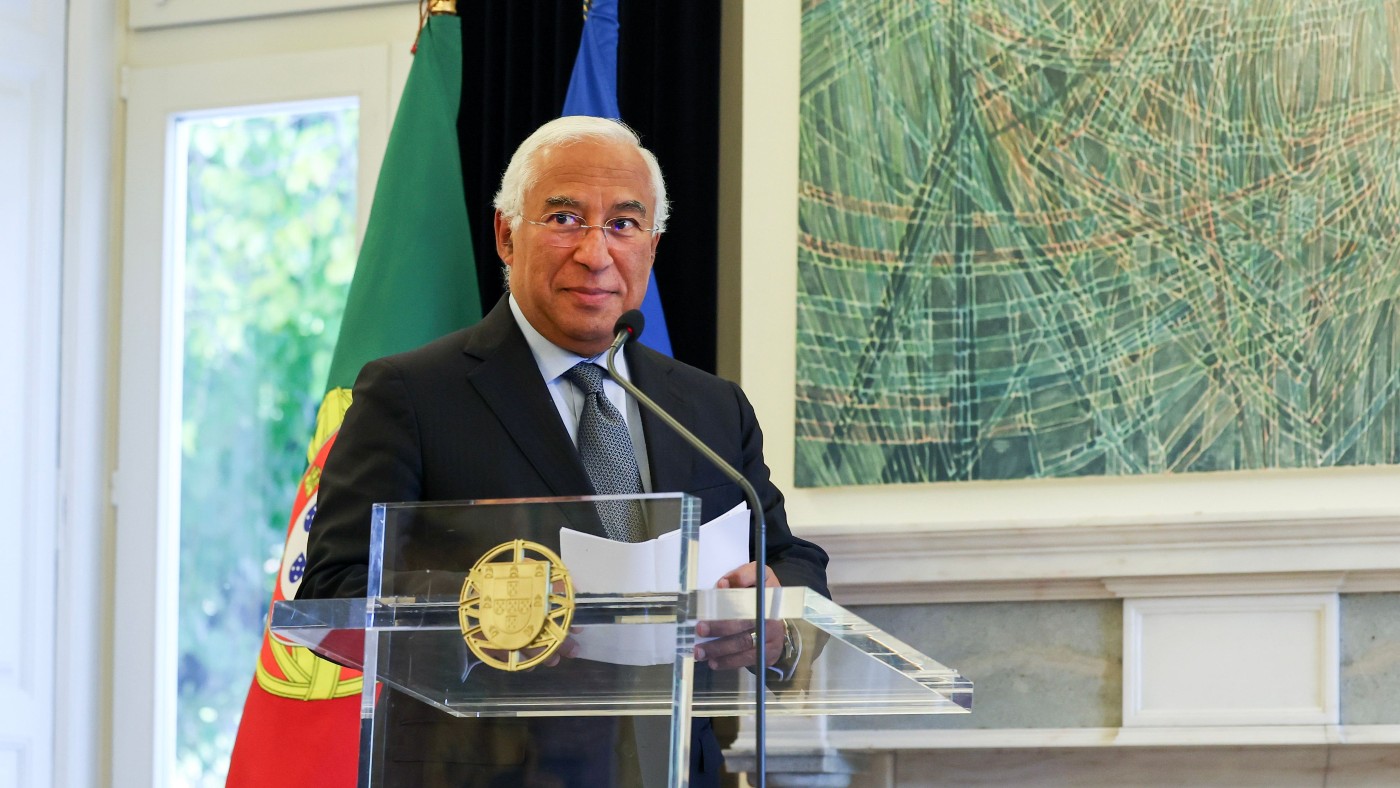Corruption crisis engulfs Portugal as PM stands down
António Costa implicated in corruption probe over award of contracts for two large-scale lithium-mining projects

A free daily email with the biggest news stories of the day – and the best features from TheWeek.com
You are now subscribed
Your newsletter sign-up was successful
Portugal's Prime Minister António Costa resigned yesterday after police raided his official residence and confirmed his implication in a corruption probe over lithium mines and a green-hydrogen project.
With "the country's leadership now in flux" said Politico, President Marcelo Rebelo de Sousa must exercise his constitutional right to "either appoint a new prime minister, or dissolve parliament, sparking an election".
Following Costa's resignation announcement, De Sousa said he would seek advice from leaders of political parties with representation in parliament, before the Council of State, an advisory body to the president, meets on Thursday.
The Week
Escape your echo chamber. Get the facts behind the news, plus analysis from multiple perspectives.

Sign up for The Week's Free Newsletters
From our morning news briefing to a weekly Good News Newsletter, get the best of The Week delivered directly to your inbox.
From our morning news briefing to a weekly Good News Newsletter, get the best of The Week delivered directly to your inbox.
The corruption probe is investigating the award of contracts by the government for two large-scale lithium-mining projects, "as Portugal tries to win a place for itself in Europe's growing battery-manufacturing production chain", said The Economist.
Prosecutors said that in the course of their investigations, suspects had invoked the "name and authority" of Costa and suggested he had made interventions to "unblock procedures".
Costa said he was "surprised" to learn "a criminal case has already been or will be initiated against me", and insisted that he had nothing to do with any "illicit or reprehensible act".
"But regardless of this, the dignity of the role of prime minister and the trust that the Portuguese people have in institutions are absolutely incompatible with [having] a prime minister who faces suspicions about his integrity," he added.
A free daily email with the biggest news stories of the day – and the best features from TheWeek.com
Paulo Otero, a law professor at the University of Lisbon, called it the gravest moment of institutional discredit since the country became a democracy in 1976.
"What is at stake is not suspicion about former rulers or a former prime minister, but about a prime minister in office," he told Público, a Portuguese newspaper.
Whoever succeeds Costa "will face the difficult task of restoring public trust in government", said The Economist.
Jamie Timson is the UK news editor, curating The Week UK's daily morning newsletter and setting the agenda for the day's news output. He was first a member of the team from 2015 to 2019, progressing from intern to senior staff writer, and then rejoined in September 2022. As a founding panellist on “The Week Unwrapped” podcast, he has discussed politics, foreign affairs and conspiracy theories, sometimes separately, sometimes all at once. In between working at The Week, Jamie was a senior press officer at the Department for Transport, with a penchant for crisis communications, working on Brexit, the response to Covid-19 and HS2, among others.
-
 Quentin Deranque: a student’s death energizes the French far right
Quentin Deranque: a student’s death energizes the French far rightIN THE SPOTLIGHT Reactions to the violent killing of an ultra-conservative activist offer a glimpse at the culture wars roiling France ahead of next year’s elections.
-
 Secured vs. unsecured loans: how do they differ and which is better?
Secured vs. unsecured loans: how do they differ and which is better?the explainer They are distinguished by the level of risk and the inclusion of collateral
-
 ‘States that set ambitious climate targets are already feeling the tension’
‘States that set ambitious climate targets are already feeling the tension’Instant Opinion Opinion, comment and editorials of the day
-
 Britain’s ex-Prince Andrew arrested over Epstein ties
Britain’s ex-Prince Andrew arrested over Epstein tiesSpeed Read The younger brother of King Charles III has not yet been charged
-
 Ex-South Korean leader gets life sentence for insurrection
Ex-South Korean leader gets life sentence for insurrectionSpeed Read South Korean President Yoon Suk Yeol was sentenced to life in prison over his declaration of martial law in 2024
-
 Rubio boosts Orbán ahead of Hungary election
Rubio boosts Orbán ahead of Hungary electionSpeed Read Far-right nationalist Prime Minister Viktor Orbán is facing a tough re-election fight after many years in power
-
 Key Bangladesh election returns old guard to power
Key Bangladesh election returns old guard to powerSpeed Read The Bangladesh Nationalist Party claimed a decisive victory
-
 Epstein files topple law CEO, roil UK government
Epstein files topple law CEO, roil UK governmentSpeed Read Peter Mandelson, Britain’s former ambassador to the US, is caught up in the scandal
-
 Iran and US prepare to meet after skirmishes
Iran and US prepare to meet after skirmishesSpeed Read The incident comes amid heightened tensions in the Middle East
-
 EU and India clinch trade pact amid US tariff war
EU and India clinch trade pact amid US tariff warSpeed Read The agreement will slash tariffs on most goods over the next decade
-
 Grok in the crosshairs as EU launches deepfake porn probe
Grok in the crosshairs as EU launches deepfake porn probeIN THE SPOTLIGHT The European Union has officially begun investigating Elon Musk’s proprietary AI, as regulators zero in on Grok’s porn problem and its impact continent-wide